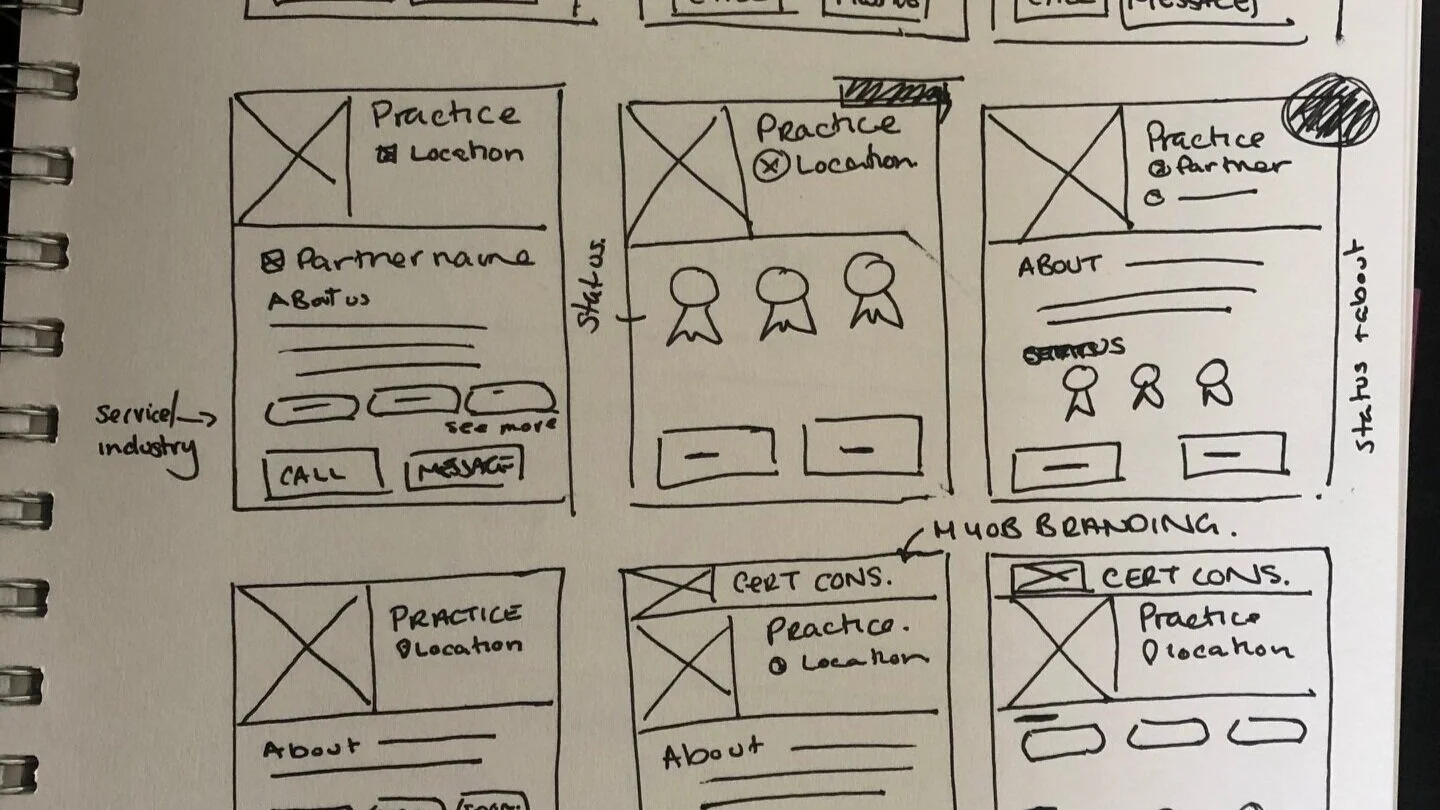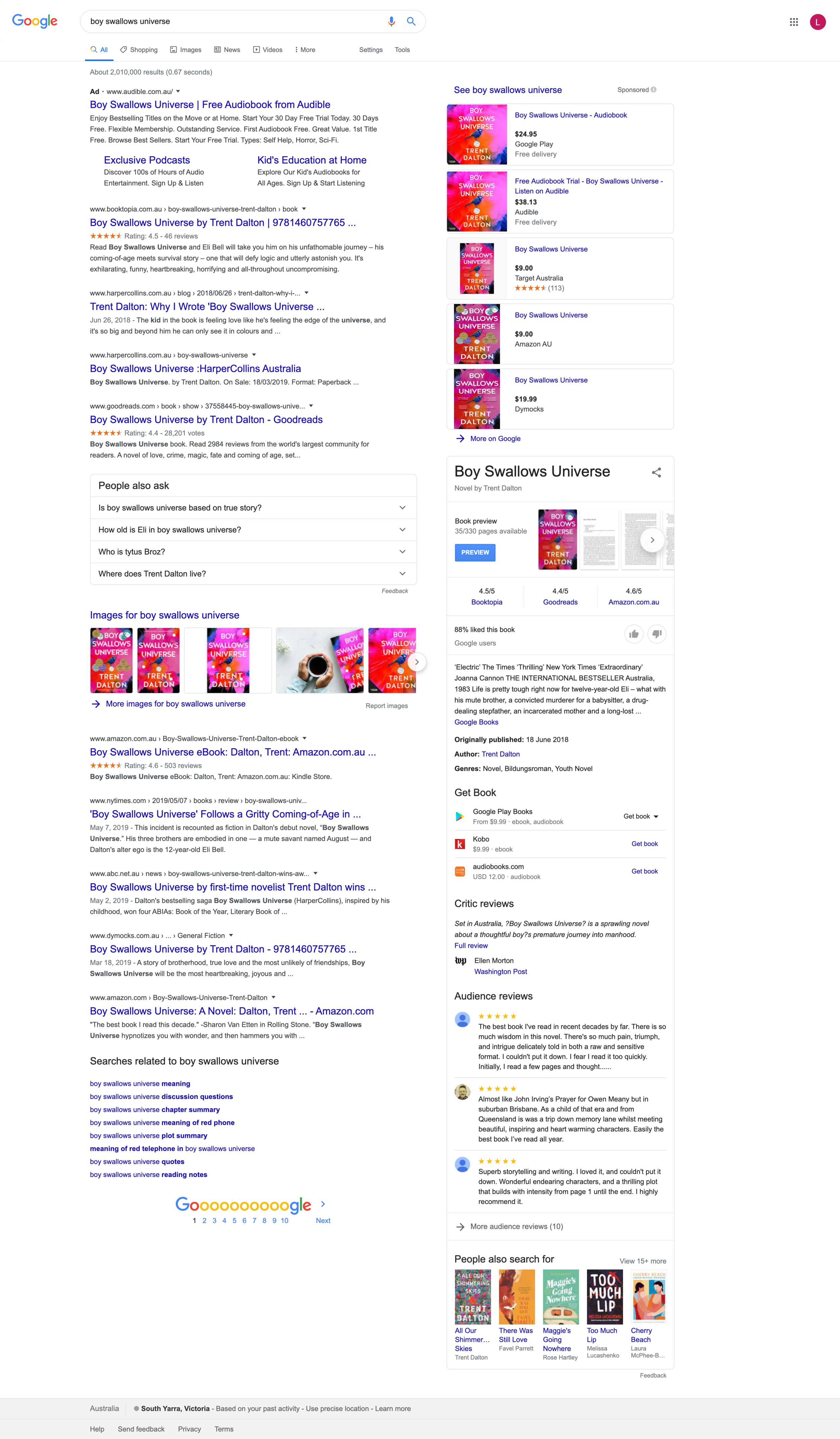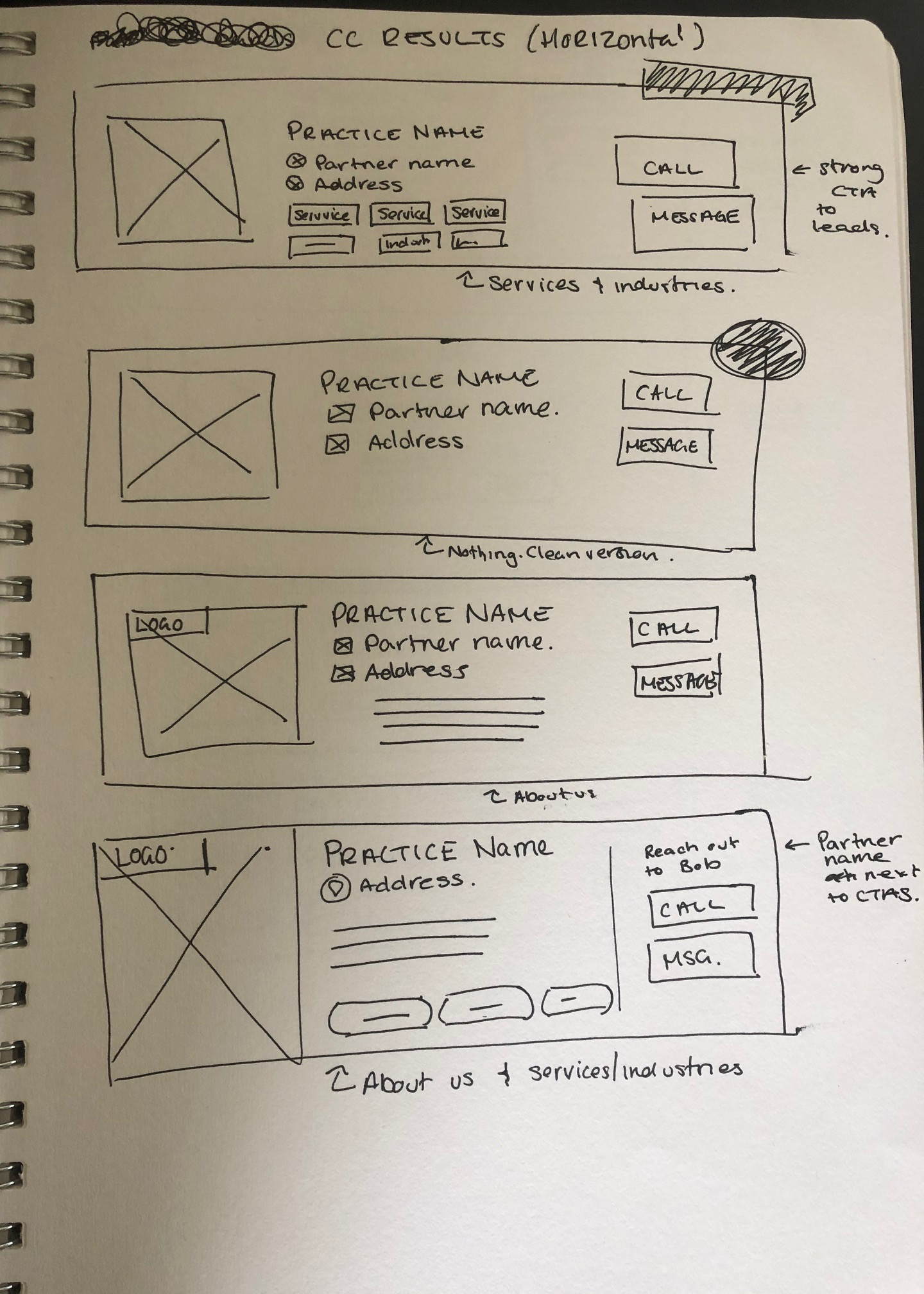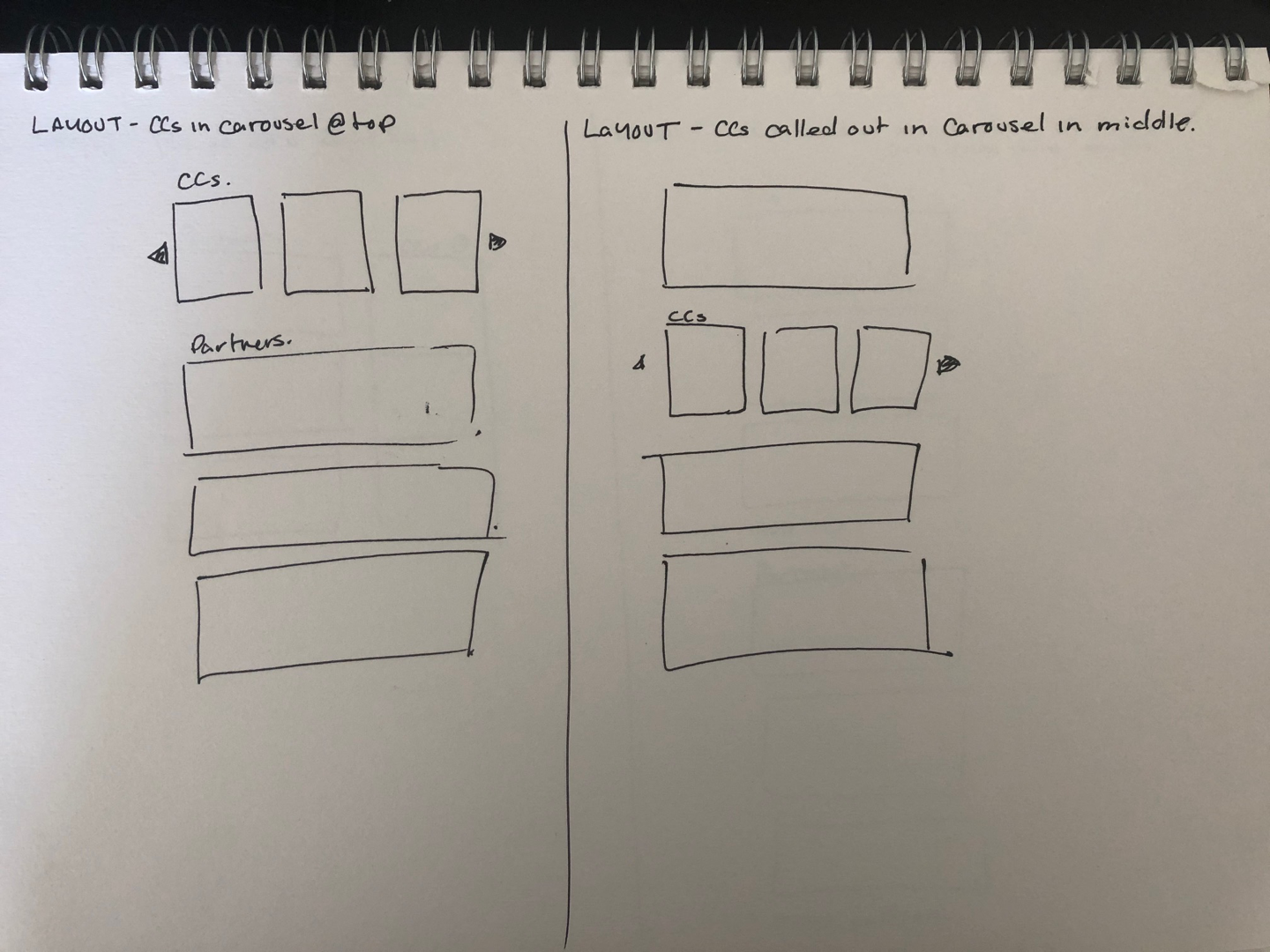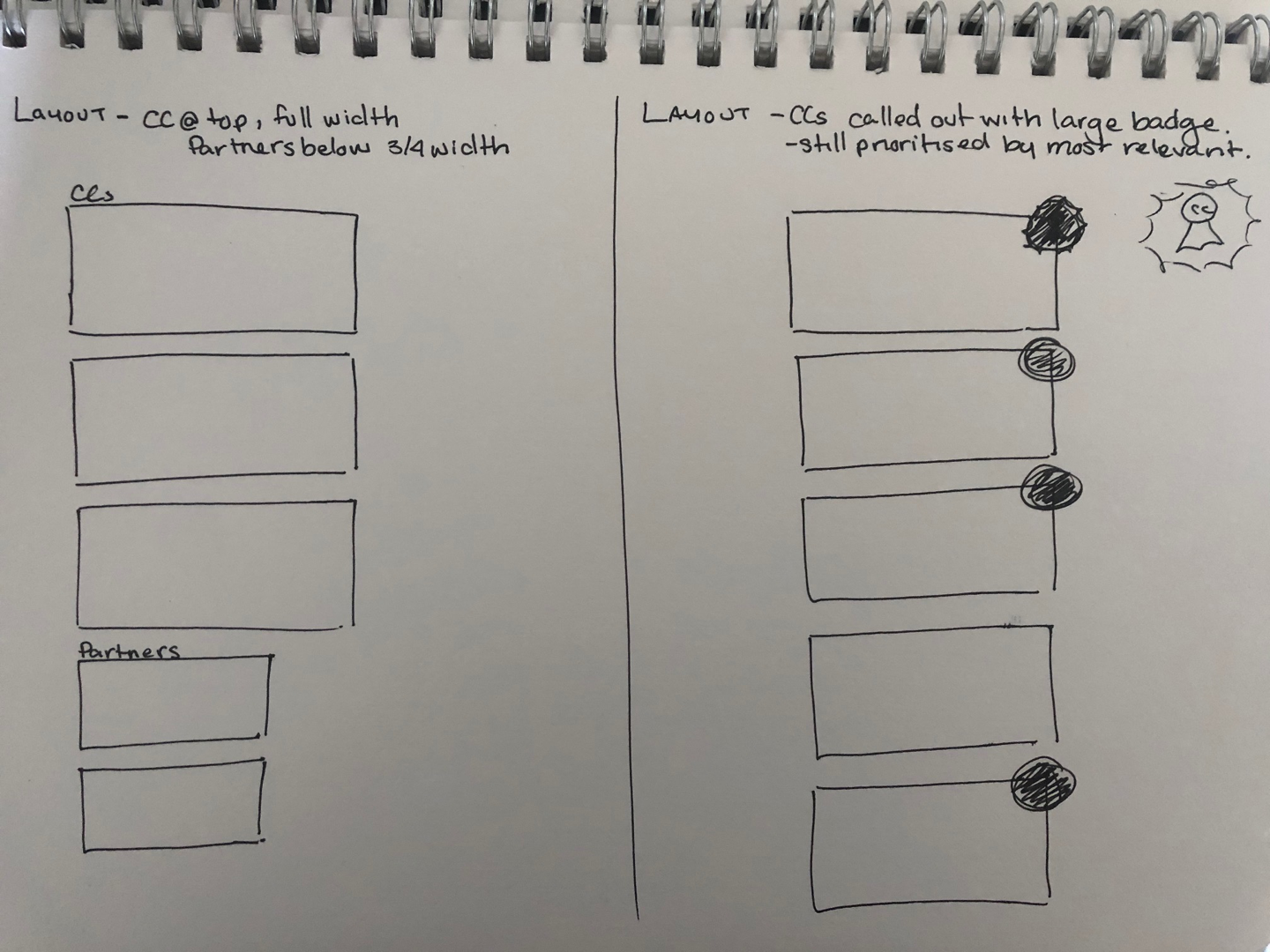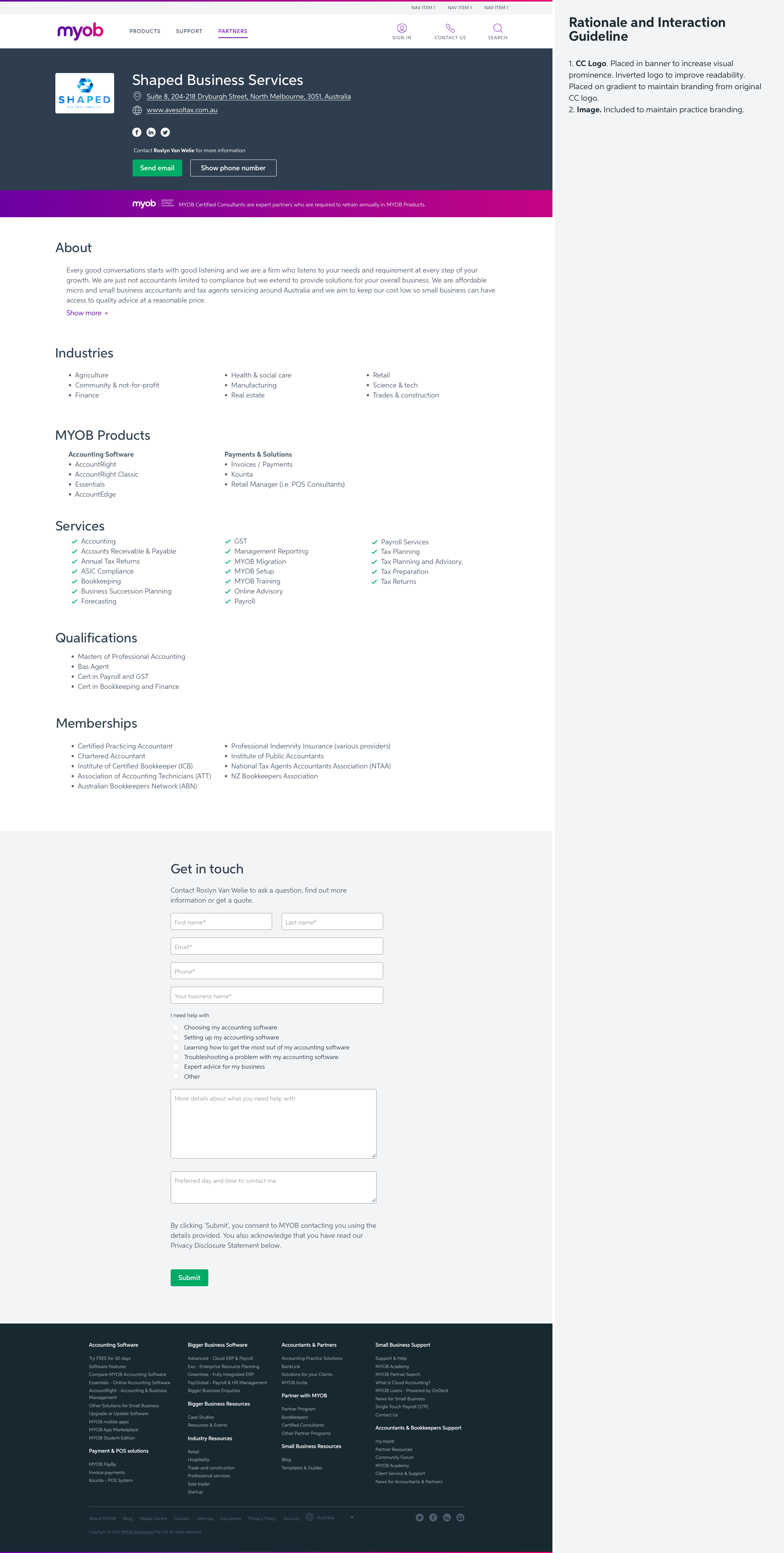MYOB
Challenge: Strengthen value proposition for existing partners in the Partner Search tool
The summary
- UX plan: Build a plan that guarantees a timely evidence-based solution by time-boxing activities
- User stories: Articulate user needs to improve focus during the design process
- Secondary research: Understand the problem space through existing research and landscape reviews
- Ideation and Prioritisation workshop: Collaborate with the delivery team to identify viable, feasible and desireable solutions
- Design iterations: Explore, share and refine designs to deliver the best solution within the timeframe.
- Finalise solution: Document rationale and interaction design notes for efficient delivery and preparation for next iteration
The background: With the onset of COVID-19, the Partner Search tool — used to connect small and medium businesses to MYOB Partners — became increasingly critical to help businesses navigate the new climate. The initiative to increase search results by adding all partners to the database, not just certified partners, immediately became a priority. This change required an increased value proposition of MYOBs certified partners by distinguishing the search results.
My role: As the Senior UX Designer within the newly formed MYOB Partners Digital Experience team, I planned and executed the UX approach from research to design.
The approach: I used the double-diamond framework; discover, define, design, deliver, within an agile environment. I worked closely with the development team and stakeholders to quickly and effectively provide the best user experience within an immediate timeframe.
The deliverables: Design and Interaction specifications, launched redesign
The outcome: Working remotely, our newly formed team pivoted from its current initiative to promptly address the new customer need. I delivered the best customer experience within the timeframe by collaborating closely with the delivery team and stakeholders. Despite the sudden disbandment of the team during delivery, they quickly and successfully released the designs.
The details
UX Plan
Build a plan that guarantees a timely evidence-based solution by time-boxing activities
After being briefed on the initiative pivot by the Product Manager, I developed a UX plan to scale to the delivery timeframe. I time-boxed the UX activities to guarantee a lean-approach that would ensure we provided a great customer experience and stayed ahead of the changing climate to better support our customers.
> This step set the UX framework.
> Discover & Define: Solving the right problem
User stories
Articulate user needs to improve focus during the design process
To anchor the team's alignment, stakeholder expectations and focus the designs, I wrote three user stories based on existing research that addressed the needs of the three key audiences.
> This step became the tool to measure the success of the designs throughout the process.
Landscape review
Understand the problem space through existing research and landscape reviews
Next, I conducted a landscape review to learn how other direct competitors and lateral businesses have approached findability of numerous products and services for multiple audiences. I collaborated with the digital experience team to ensure a variety of examples.
> This step inspired the designs in the ideation session.
AirBnB
AirTasker
Ideation & Prioritisation
Collaborate with the delivery team to identify viable, feasible and desireable solutions
Next, I facilitated a remote ideation workshop with the delivery team using Mural. To increase engagement and reduce churn in design and delivery, I invited the delivery team. The Product Manager provided the context while the remainder of the team contributed their expertise and perspective. The landscape review inspired ideas which were then prioritised based on their viability, feasibility and desirability within the timeframe. The process captured ideas out of scope for future designs.
> This step informed the first iteration of sketching
> DESIGN & DELIVER: Designing the right solution
Design Iterations
Explore, share and refine designs to deliver the best solution within the timeframe.
Using the prioritised ideas from the ideation workshop, I sketched several options for the search results layout and details. The Product Manager, Development Lead and I then shared the process and initial sketches with the stakeholders to provide the opportunity for early feedback and ensure alignment.
> This step identified the top sketches to refine
Refining the design
Next, I explored and refined the top sketches in Sketch. With a more realistic look, I aligned once again with the delivery team and stakeholders before finalising the designs. Throughout the process, I collaborated with another designer and I shared my progress in a weekly UX Design to receive unbiased and expert UX feedback .
> This step identified the final solution
Finalise designs
Document rationale and interaction design notes for efficient delivery and preparation for next iteration
Finally, I created the final designs that reflected the best customer experience possible to deliver within the timeframe. I documented the rationale behind the design decisions and interaction specifications to support the delivery team. I briefed the delivery team, filled in identified gaps and helped the team through delivery.
> This step provided the specifications for developers to implement the designs.
Results: A better experience
While suddenly working remotely, I collaborated effectively with a newly formed team to deliver improved and realistic designs within the timeframe necessary to support MYOBs small and medium businesses navigating the new and ever-changing COVID-19 landscape.
Despite the team receiving notice of disbandment at this point, they persevered and delivered an improved user experience and set the business up for the next steps in this initiative.
